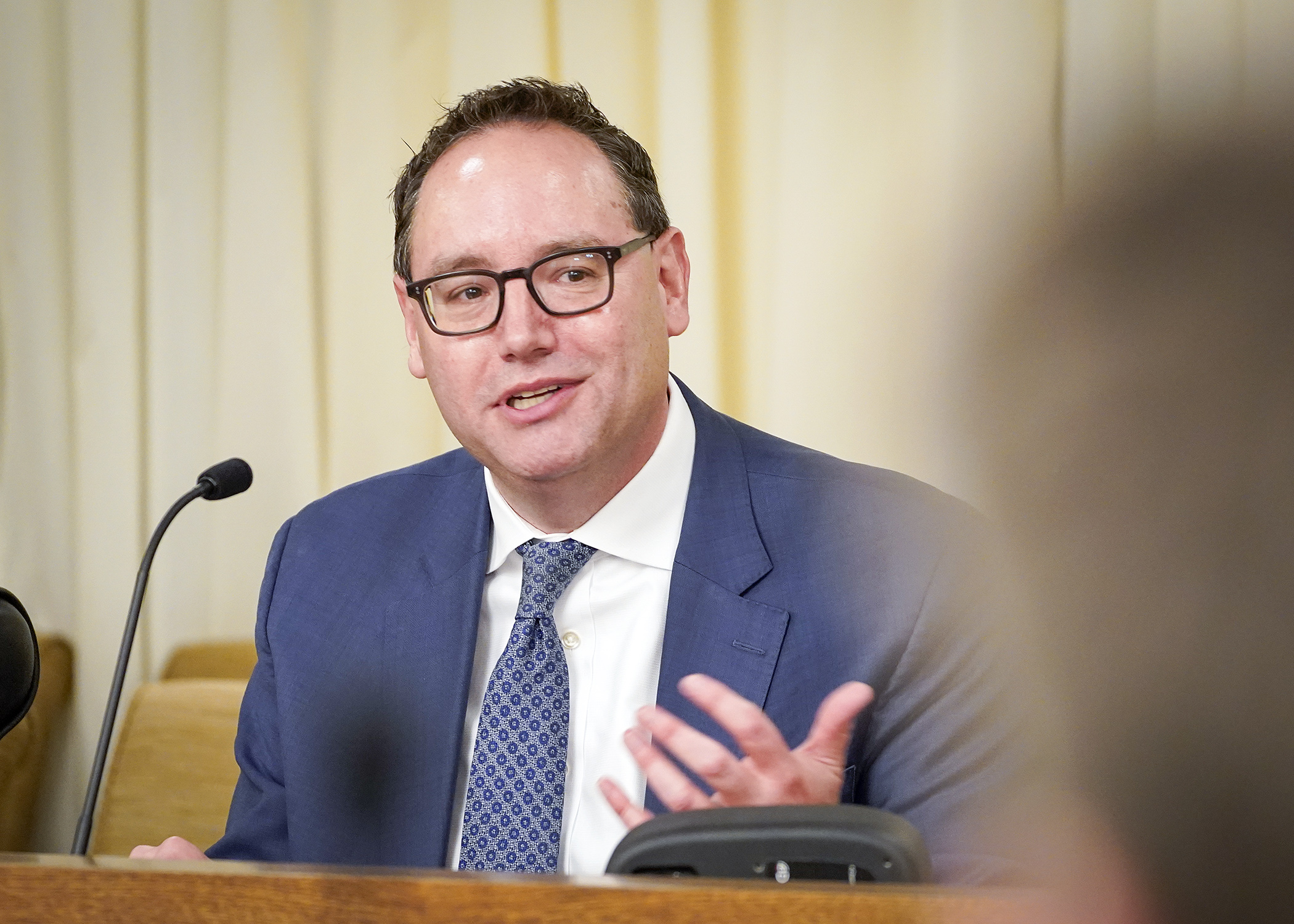State poised to power planes with pulp, not petroleum
Can you fly airplanes with wood?
The answer is: yes.
It’s a very qualified “yes” — and it may not happen for many years — but the potential exists to manufacture sustainable aviation fuel from residual wood products and other non-petroleum-based sources that can reduce an airplane’s carbon footprint.
“The technology to fly airplanes with wood exists but needs to be scaled up to show the true potential,” Rick Horton, executive vice president of Minnesota Forest Industries, told the House Agriculture Finance and Policy Committee at an informational hearing Monday.
Other non-petroleum sources that can be used to manufacture sustainable aviation fuel include renewable feedstocks, such as the food and yard waste portion of municipal solid waste, woody biomass, fats/greases/oils, and other feedstocks.
 Jeff Davidman, vice president of state and local government affairs at Delta Air Lines, testifies before the House's agriculture committee Feb. 10 about sustainable aviation fuel. (Photo by Andrew VonBank)
Jeff Davidman, vice president of state and local government affairs at Delta Air Lines, testifies before the House's agriculture committee Feb. 10 about sustainable aviation fuel. (Photo by Andrew VonBank)Horton was one of several testifiers who said using sustainable aviation fuel to power airplanes is in its infancy and needs large-scale development — and probably government subsidies — to make it economically viable.
Sustainable aviation fuel currently costs two to five times more than conventional jet fuel, said Jeff Davidman, vice president of state and local government affairs at Delta Air Lines, but the demand is very high as many airlines seek to reduce their carbon footprint.
Although Delta used 12 million gallons of sustainable aviation fuel last year, he said that’s a small fraction of what would be needed to reach Delta’s goal of reaching net-zero emissions by 2050.
The interest in using farm and forest products, waste products, and byproducts is extremely high among many segments of the agriculture economy across the state, said Andrea Vaubel, deputy commissioner at the Department of Agriculture.
“Minnesota has plenty of feedstocks ready to go,” she said. “We know that we are going to need everything and anything that’s available to meet the demand.”
She urged the committee to focus on legislation that will carry the sustainable aviation fuel industry to the next level, specifically by continuing the tax credits that help agricultural producers adapt to producing new biomass fuel sources and to attract new investors to the state.
“Companies across the country continue to look to Minnesota and our food and ag sectors for investments in innovation, and it’s important we continue investing in our nation-leading tax credits so companies know that Minnesota is where they should be making their home,” she said.
Related Articles
Search Session Daily
Advanced Search OptionsPriority Dailies
Speaker Emerita Melissa Hortman, husband killed in attack
By HPIS Staff House Speaker Emerita Melissa Hortman (DFL-Brooklyn Park) and her husband, Mark, were fatally shot in their home early Saturday morning.
Gov. Tim Walz announced the news dur...
House Speaker Emerita Melissa Hortman (DFL-Brooklyn Park) and her husband, Mark, were fatally shot in their home early Saturday morning.
Gov. Tim Walz announced the news dur...
Lawmakers deliver budget bills to governor's desk in one-day special session
By Mike Cook About that talk of needing all 21 hours left in a legislative day to complete a special session?
House members were more than up to the challenge Monday. Beginning at 10 a.m...
About that talk of needing all 21 hours left in a legislative day to complete a special session?
House members were more than up to the challenge Monday. Beginning at 10 a.m...